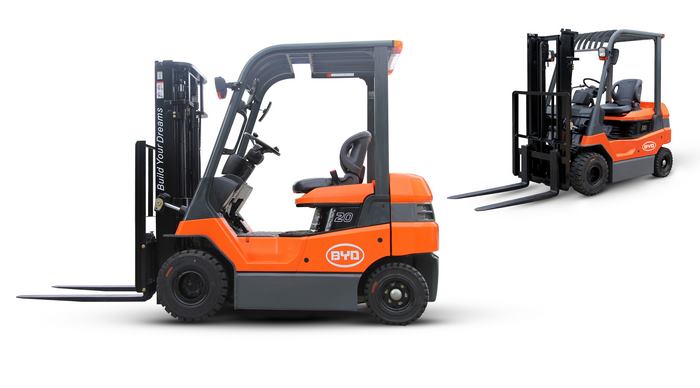 Bill Redmond |
Bill Redmond, a UK-based logistics and materials handling writer, publishes a blog, http://www.logisticswithballs.blogspot.com, to keep abreast of how inappropriate logistics techniques severely damage businesses and taxpayers.
Thanks largely to EU directives, forklift diesel engines have drastically cut their toxic emissions since the first European legislation got under way in 1996 with Stage I, designed to regulate emissions of nitrogen oxides (NOx), particulate matter (PM), carbon monoxide and hydrocarbons from non-road diesel engines. This year sees the latest EU regulation, Stage IV, come into force, which will cut non-road NOx exhaust emissions by 80% compared with Stage IIIB standards they replace. Engines will also be required to use ultra-low sulphur diesel, and in the struggle to meet ever-challenging targets, engine makers use two main technology options: selective catalytic reduction (SCR) and EGR, which dilutes the amount of oxygen in the combustion chamber. Both options, however, have their drawbacks and the fact is that the new legislation is not retrospective, so dirtier diesel forklifts, even when fitted with catalytic converters and soot filters, will continue to expose workers within their premises to serious health risks for years to come.
Should we, however, be concerned by air pollution from diesel-powered vehicles in general, and is there still an economic case for supporting diesel forklifts over electric, leaving aside, for the moment, the health issues?
Yes, we should and the economic case for diesel no longer holds as true as it once did.
In the pursuit of less carbon dioxide (CO2) emissions to ease the perceived threat of climate warming, the European Union favoured diesel over petrol because diesel engines burn fuel more efficiently and emit less CO2. But a by-product of burning diesel is nitrogen dioxide (NO2) and for more than 10 years, governments knew that diesel was producing such harmful pollutants. "It's been a catastrophe for air pollution," said Simon Burkett, founder of Clean Air in London. The WHO says that NOx is linked to asthma, now affecting around 6 million people in Britain and killing 1,200 a year, with huge medical costs, and other pulmonary diseases, especially in children. Diesel combustion also generates easily inhaled fine particulate matter, which probably killed 3,389 people in London during 2010, according to the Government agency Public Health England. This kill rate equates with some of the worst smogs back in the 1950s, which belatedly ushered in the Clean Air law in 1956. Researchers also think that NO2 has harmful effects independent of particulate matter.
Deadly dealIn 2012, the EU's NO2 limit - a maximum of 40 micrograms per cubic metre of air - was breached at 301 sites in the EU, including seven in London, which is the most NO2-polluted of all the sites and greater even than in Beijing, where smog alerts are common. Owing to a deal between car-makers and the EU in 1998 to lower the average CO2 emissions in new vehicles, car companies chose to make more diesel-powered cars, now accounting for about half of all cars - against under 10% 10-15 years ago, and diesel fuel was also made cheaper than petrol for some years. So what began as a well-meant EU policy to curb carbon emissions has proved a serious health failure.
 BYD's battery uses lithium-ion phosphate technology. |
Diesel forklifts should not operate inside food and pharma premises, including their warehouses, and the same should apply to LPG, despite being cleaner than diesel, but their favourable performance level against electric trucks, and other economic factors, mean they are still found working inside premises, particularly warehouses.
But technical advances in batteries and chargers mean that electric trucks are at the same performance levels as diesel, says Matthias Fischer, President of Toyota Material Handling Europe. Hitherto used mainly for loads up to 2 T, electric forklifts and/or AGVs can now be used in ports, for example, moving 60 T loads. Electrics were also disfavoured because of the need to recharge batteries over long periods, have costly standby batteries for multi-shift work and the need to set aside charging areas, adversely impacting the total cost of ownership. Recent technology advances, however, have diminished those disadvantages, while the latest EU Stage IV regulation will only raise the cost bar for diesel engines, thus weakening their economic case.
A good example of this is BYD's battery that uses lithium-ion phosphate technology. BYD is a Chinese company that also makes forklifts and its claims for its batteries are impressive. According to Javier Contijoch, forklift director at BYD Europe, users will enjoy 25-30%savings on operating costs. The battery chemistry requires less time and energy than lead-acid batteries for recharging and it can extend total battery life to the point where users never have to replace their truck's original battery. It also eliminates battery maintenance, avoids the emissions associated with traditional battery charging and removes the expense of buying and maintaining spare batteries, a hugely significant cost factor. Charging is also fast (one to two hours) and energy consumption during charging up to 40% less. The battery can be charged incrementally rather than all in one go, thereby allowing drivers to extend driving times by recharging during break times. The battery is said to be cleaner and safer than alternative lithium-ion solutions.
These and other advances in forklift motive power alternatives should concentrate the minds of all diesel truck users, whether used internally or outside. The question uppermost in their minds should be: "Can we continue to justify diesel forklift usage at the risk to our employees' health and even lives?"